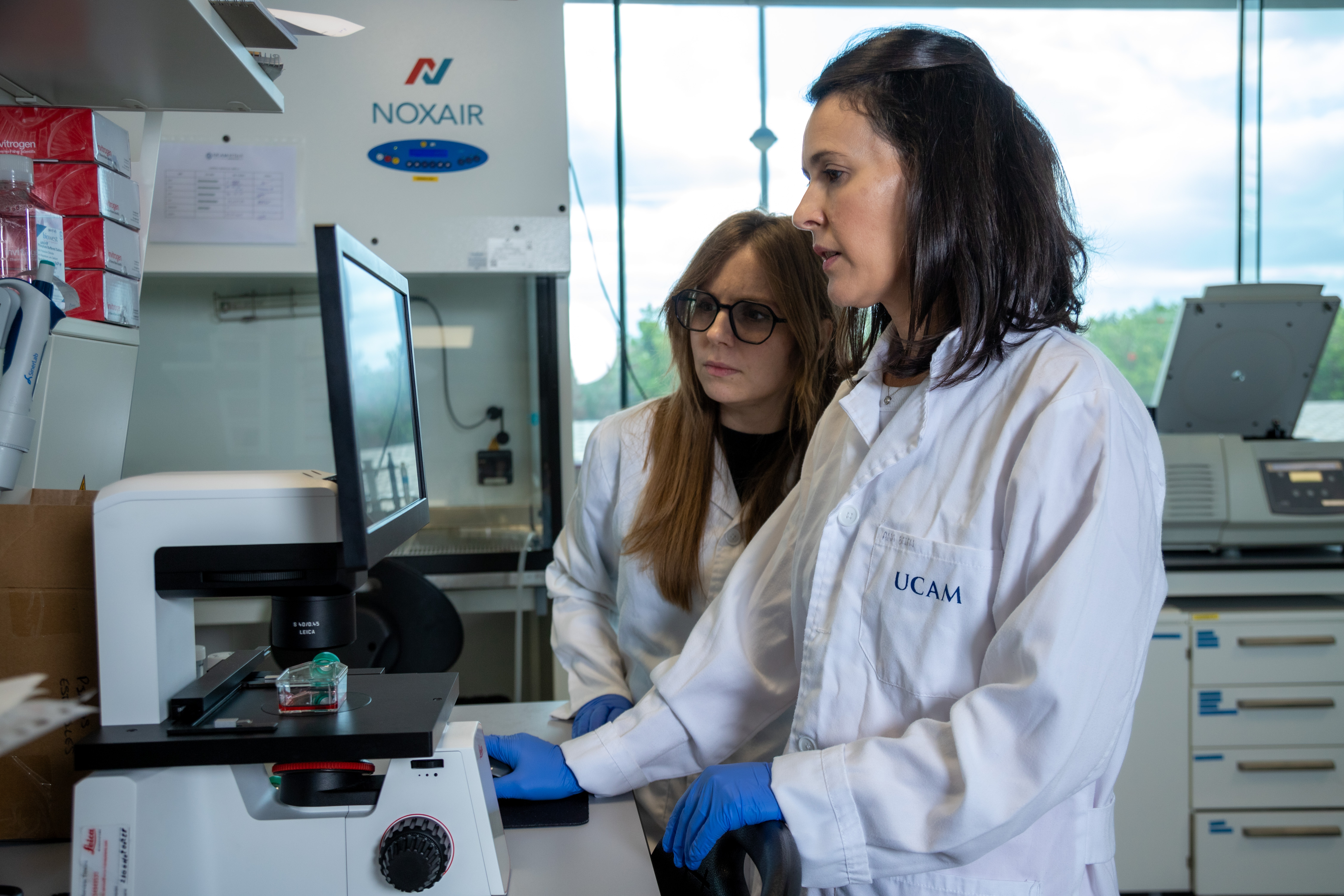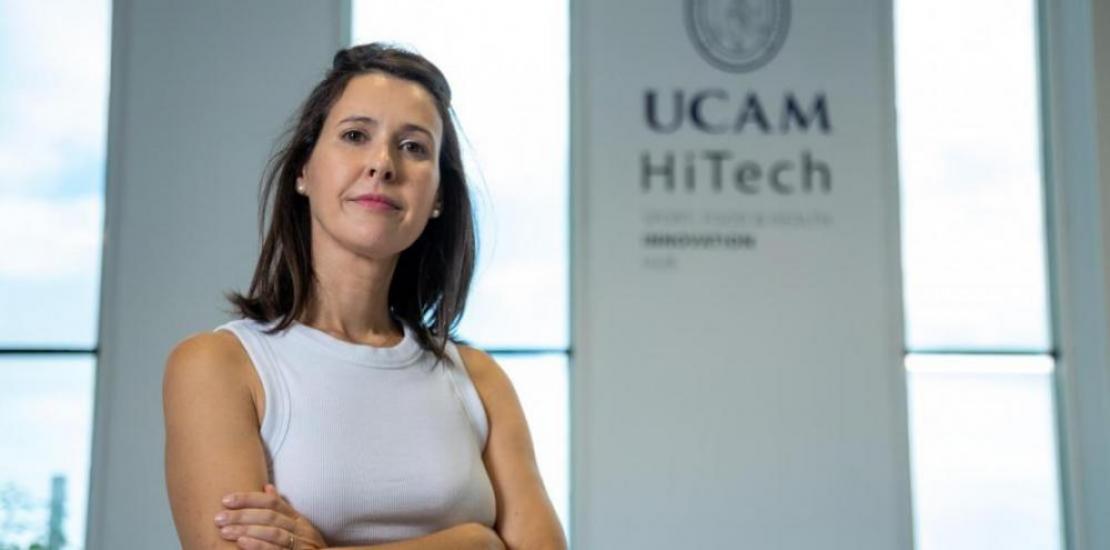From Cambridge to UCAM
Adriana Ordoñez González, originally from Murcia, returns to the Region with a Ramón y Cajal contract. After 15 years in the UK, she comes back to research the cellular response to certain diseases using CRISPR-Cas9, in the Juan Carlos Izpisua Laboratory at UCAM HiTech
A year ago, researcher Adriana Ordóñez set the goal of doing applied research, but this time in her homeland, Murcia. After 15 years living in the United Kingdom, where she has developed her research career at the University of Cambridge and the Cambridge Institute for Medical Research (CIMR) she has now returned to the region of Murcia to be part of the UCAM Research Group 'Metabolism and Genetic Regulation of Diseases’ which carries out its work in the Juan Carlos Izpisua Laboratory of the high-tech incubator for health, sport and food. Here she will study the cellular response to the accumulation of misfolded proteins and their relationship with certain diseases.
UCAM is the destination she has chosen to continue her research. As Adriana points out, ‘I have followed its trajectory in research and internationalisation and it has evolved incredibly in recent years. I think it is putting a lot of emphasis on science, on translational science,’ an approach that connects basic research with clinical application, and which fits with Dr. Ordóñez.
She will study the cellular response to the accumulation of misfolded proteins and its relationship to certain illnesses.
UCAM is the Spanish private university that has grown the most in research (IUNE Observatory), ranking second in the country in this sector (THE Interdisciplinary Science Rankings 2025) and first in raising private funds for research (CYD ranking).
Understanding to heal, from basic research to clinical practice
Adriana Ordóñez, with a long career in the field of Molecular and Cellular Biology, has been awarded a prestigious ‘Ramón y Cajal’ contract, which will allow her to continue her work at UCAM, a commitment to high-impact research, with the use, for example, of CRISPR-Cas9 technology.
‘Proteins are essential elements that our cells produce in a structure called the endoplasmic reticulum, which perform key functions such as forming tissues, transporting substances or defending us against disease. To function properly, proteins must fold precisely into a specific three-dimensional structure. However, when cellular conditions are altered (by a hereditary disease or infection), proteins can misfold, becoming ineffective or even harmful to the cell,’ says the UCAM researcher, who adds that through the UCAM Research Group ‘she wants to study how the cell responds to the accumulation of these misfolded proteins, a process known as endoplasmic reticulum stress or UPR (Unfolded Protein Response). This cellular response is involved in diseases such as cancer, Alzheimer's, diabetes and respiratory diseases, among others.’
We plan to create a large-scale CRISPR screening platform at UCAM that will serve not only to advance our own research, but also as a resource for other external scientists.
To understand these mechanisms, Adriana and her team will use genome-wide CRISPR-Cas9 screening to assess the function of the approximately 20,000 genes in the genome in a single experiment and identify which gene or genes are relevant to a specific cellular function, ‘allowing us to identify genes that modulate this response and discover new therapeutic targets’.

Likewise, as part of her Ramón y Cajal project, ‘we plan to create a large-scale CRISPR screening platform at UCAM that will serve not only to advance our own research, but also as a resource for other external scientists’ says the researcher.
Training
Adriana Ordóñez began her research at the Regional Blood Donation Centre, where she completed her European Doctoral Thesis with funding from the Ministry of Education and Science, after finishing her studies in Biology. Her professional consolidation took place abroad, where she also collaborated with different international groups, including a stay at the Albert Einstein Institute in New York as well as gaining experience in the industry by working at the startup DefiniGEN.
Her career has been recognised by different European institutions and she has published high impact scientific articles in journals such as Nature, Cell Reports, eLife; although her work philosophy has always been focused on the quality of research rather than the quantity of publications.
Now, she is starting a new stage at UCAM, where she is already preparing scientific projects to present them to competitive calls at both national and international level, with the aim of continuing to expand her team.




